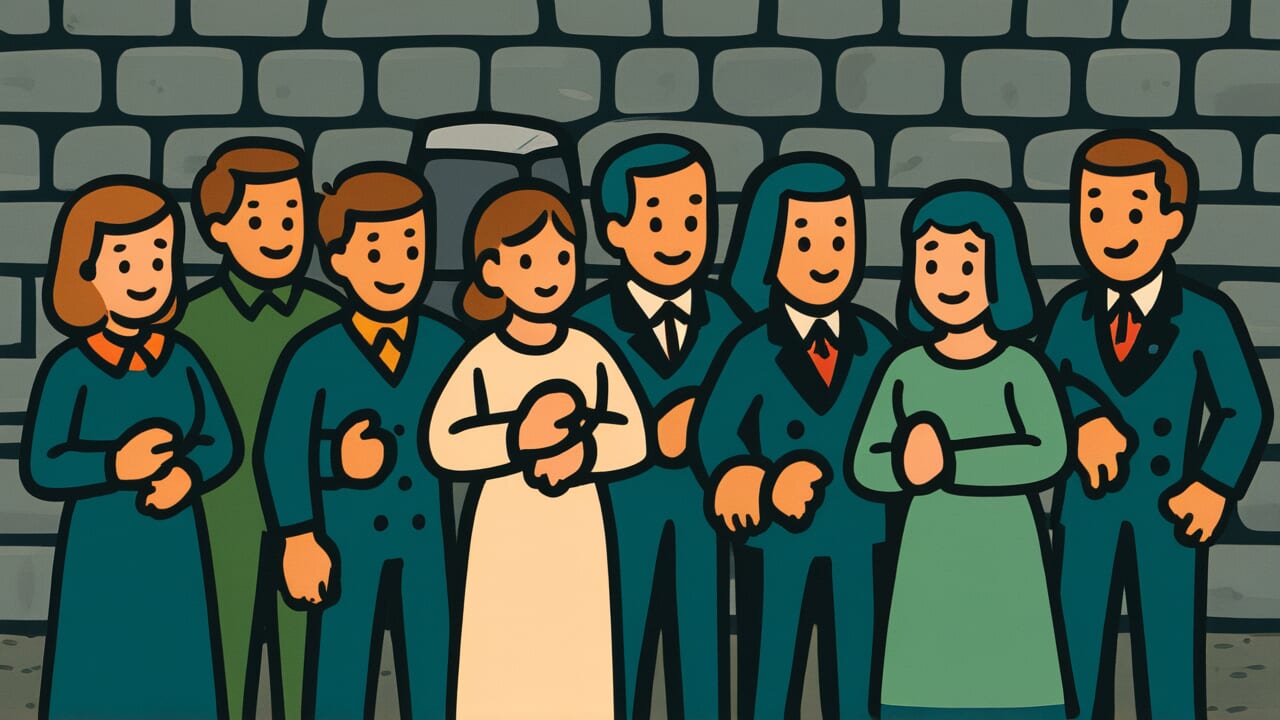How to Read “People are stone walls, people are castles”
Hito wa ishigaki, hito wa shiro
Meaning of “People are stone walls, people are castles”
This proverb means that people are the most important foundation of any organization or nation. No matter how impressive your buildings or equipment are, it’s ultimately humans who operate, protect, and develop them.
With excellent people, an organization becomes strong even if its physical defenses are weak. But without good people, an organization remains fragile no matter how impressive its facilities are.
Business leaders and managers often use this proverb when talking about building organizations. Investment in equipment and systems matters, but they use this saying to emphasize that developing people and building trust is even more important.
Even today, when companies prioritize human resource development and relationship building, this proverb’s truth gets reconfirmed. It remains relevant in modern business management and organizational leadership.
Origin and Etymology
This phrase comes from a poem attributed to Takeda Shingen, a famous warlord of the Warring States period. The full verse goes: “People are castles, people are stone walls, people are moats; compassion is your ally, revenge is your enemy.”
Takeda Shingen ruled the province of Kai and famously never built a fortified castle. Kai was a mountainous region with few suitable sites for large flatland castles. But Shingen deliberately chose to prioritize trust with his vassals and people over physical defenses like stone walls and moats.
Whether Shingen actually wrote these words isn’t certain from historical records. It may have spread later as an expression of his philosophy. However, it’s historical fact that the Takeda clan valued people and developed an excellent group of retainers.
Famous generals like Yamamoto Kansuke and Baba Nobuharu supported Shingen. The Takeda military became legendary for its strength, passed down to later generations as “Koshu-style military science.”
By contrasting physical defenses like castles and stone walls with people, this phrase brilliantly expresses the importance of human resources in organizations. It represents deep insight born from the harsh survival competition of the Warring States period.
Interesting Facts
Takeda Shingen’s headquarters at Tsutsujigasaki was indeed not a fortified castle surrounded by stone walls. It was called a mansion rather than a castle, a relatively simple residence.
Shingen’s rival Uesugi Kenshin also used Kasugayama, a mountain castle, as his base. It too wasn’t a large-scale stone-walled castle. Many famous generals of the Warring States period valued mobility and people over massive castles.
In contrast, Toyotomi Hideyoshi and Tokugawa Ieyasu built magnificent castles like Osaka Castle and Edo Castle. But they too were passionate about recruiting talent. Ultimately, all the warlords who conquered Japan deeply understood the importance of people.
Usage Examples
- We should invest in employee training before buying new equipment. People are stone walls, people are castles, right?
- No matter how great a system you introduce, it’s meaningless if the people using it aren’t developed. People are stone walls, people are castles.
Universal Wisdom
The wonder of human beings lies in their vast potential. Stone walls have their strength determined the moment they’re built. Castle walls have their defensive power fixed when constructed. But people are different.
People can learn, grow, and demonstrate power beyond imagination through relationships of trust.
This proverb has been passed down for so long because it recognizes this special quality of humans. Organizations are ultimately collections of relationships between people. No matter how excellent your strategy or equipment, it’s human will, judgment, and passion that make things work.
And people demonstrate extraordinary power when they feel valued and trusted.
During the Warring States period, when life-and-death struggles were daily reality, some people realized this truth. They knew the limits of physical defenses. No castle wall is powerless against betrayal. No moat can prevent internal collapse.
But people bound by genuine trust can be stronger than any physical wall.
Human relationships are the strongest defense and the greatest asset. Our ancestors learned this universal truth through battle and passed it down to us.
When AI Hears This
When one stone in a stone wall crumbles, there’s danger of cascading collapse. This is a “hub node dependent” structure. When an important stone (hub) loses support, the whole system can suddenly fail.
It’s like when a major server goes down on the internet and numerous websites become unusable.
Human networks are different. In network theory, there’s “small-world” connectivity where everyone connects to anyone in the world through an average of six people. In organizations too, if members connect through multiple paths, information and functions keep flowing through alternate routes even when one person is missing.
This is called “redundancy.” Multiple paths that seem wasteful actually prevent organizational collapse.
There’s an interesting “robustness paradox.” When you pursue efficiency and keep only the shortest routes, organizations become fragile. Brain neural network research shows about 80 percent of neurons function as “backup,” serving as reserves when damage occurs.
Shingen intuitively understood this principle during the Warring States period. Human relationships that flexibly connect are overwhelmingly stronger against unpredictable attacks than physical structures like castle walls. It’s essentially the same concept as modern cloud systems distributing data across multiple servers.
Lessons for Today
For those of us living today, this proverb teaches something important. Don’t place value only on visible things. We tend to seek security in tangible things like impressive offices, the latest equipment, and well-organized systems.
But what truly matters is the hearts of the people working there and their mutual trust.
If you’re any kind of leader, start by valuing people. Listen to your members, support their growth, and build relationships of trust. If you’re part of an organization, keep growing daily so you can become someone’s “stone wall.”
People are stone walls, people are castles. These words teach us that human relationships are the strongest foundation. No matter how much technology advances or how much AI evolves, the power of human bonds will never fade.
Starting today, why not treasure the people around you as irreplaceable assets?



Comments